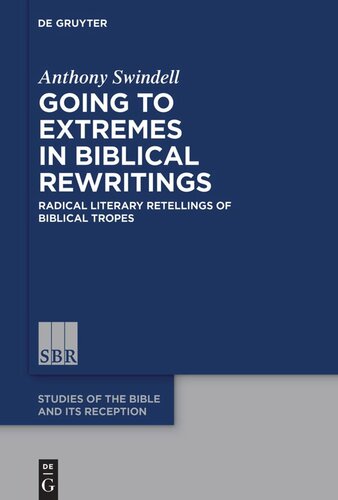

Most ebook files are in PDF format, so you can easily read them using various software such as Foxit Reader or directly on the Google Chrome browser.
Some ebook files are released by publishers in other formats such as .awz, .mobi, .epub, .fb2, etc. You may need to install specific software to read these formats on mobile/PC, such as Calibre.
Please read the tutorial at this link: https://ebookbell.com/faq
We offer FREE conversion to the popular formats you request; however, this may take some time. Therefore, right after payment, please email us, and we will try to provide the service as quickly as possible.
For some exceptional file formats or broken links (if any), please refrain from opening any disputes. Instead, email us first, and we will try to assist within a maximum of 6 hours.
EbookBell Team

5.0
20 reviewsThis book sets out to provide a matrix for surveying the literary treatment of biblical tropes. It supplies an overview of the literary reception of the Bible from the earliest times right through to contemporary writers such as Jeanette Winterson and Colm Tóibín, traces the literary reception and treatment of the Book of Job; the figure of Uriah in the narrative of David and Bathsheba; the figure of Lilith; and Angels of Death and of Mercy. These are all handled as specimen histories. This is followed by an examination of the output of several specific early and later Twentieth-Century rewriters of the Bible. In the last chapters, three sets of other writers under particular headings ("the Great Disrupters" etc.) are grouped together with a view to finding common characteristics as well as unique features in their approach to biblical tropes and provide conclusions and suggestions for further research.